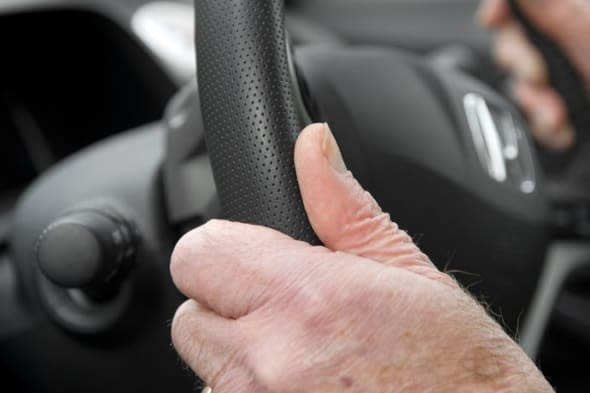Driving in later life - the law

In the UK, there is no legal age at which you must stop driving, but changes to your health can affect your driving, and it is important for your own safety and the safety of others that you consider what ageing might mean for you as a motorist. Here's what you need to know.
Related Searches
The law
There is no law that dictates at what age you should stop driving, but after the age of 70, you must renew your licence every three years. It is also essential that you notify the DVLA of any medical conditions or disabilities - either new problems or those that have worsened, that may affect your ability to drive. This is a legal obligation, and if you have a motoring accident in which an undeclared health problem is found to be a factor, your insurance may not cover you, and you could even be prosecuted.
Conditions such as diabetes where you are insulin-dependent, poor eyesight, and epilepsy must be declared, and if you have suffered a stroke or have a heart condition, you should not be driving for at least a month afterwards. If your doctor advises that you should not drive, do listen, and remember that medication can affect your driving ability, so do take care or ask your doctor if you are taking medicine that could cause a problem. If you are unsure whether you should notify the DVLA of a condition, visit www.gov.uk to find out.
Eyesight and driving
It is illegal to drive if you cannot read a number plate from a distance of 20.5 metres. If you need glasses or contact lenses to do so, you must wear them every time you drive. However, as you age, your eyes can change quite rapidly so regular eye tests are essential. Your optician will be able to advise you as to whether you need to report an eye-related condition to the DVLA. If you develop cataracts but still meet the legal requirements for driving, it is best to avoid driving at night or when very bright sunlight might cause problems on the road.
Car adaptations
Even where a disability or health condition has affected your ability to drive, it may not rule you out of motoring altogether. Adaptations and accessories such as hand controls, adapted mirrors, and ramps or lifts to help you in and out of the vehicle could allow you to continue driving. Sometimes just investing in a newer car with better power steering can make a big difference. For more advice, visit the Citizens Advice Bureau at www.adviceguide.org.uk.
Knowing when to stop
Though it can be tough to accept, sometimes giving up driving is the safest thing to do, both for yourself, your passengers, and for other road users.
%VIRTUAL-AFCSponserAds%
If you notice that your reactions are slowing down, your eyesight is getting worse or you find driving increasingly stressful, it may be time to take stock and consider giving it up. Talk to your GP if you think your health might be causing a major problem with driving, or you could even ask a driving instructor for a confidential assessment of your driving skills.
Should you decide to stop, you should contact the DVLA to advise them. You will need to fill in a form and surrender your licence. However, public transport can still allow you to get about, and if you are over 65, you are eligible for a free bus pass. So while it may feel as though you are losing that bit of independence, in the long run, you might find that you feel happier and more relaxed by not getting behind the wheel.
Are you worried about an elderly relative driving, or have you recently given up motoring yourself? Leave your comments below...




